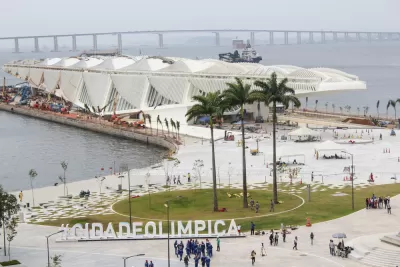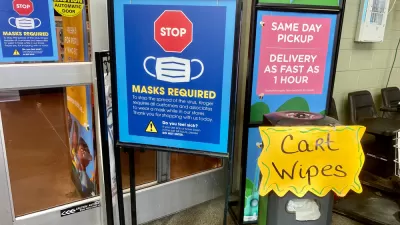On May 22, the World Health Organization declared Latin America the new epicenter of the coronavirus pandemic. Brazil is second in the world in reported cases after the U.S., and Ecuador, Peru, Chile, and Mexico are also suffering disproportionately.

In addition to time, the region had an advantage similar to the East Asian success stories—it had dealt with infectious disease recently: the 2015–2016 Zika virus epidemic. Countries took the threat serious and imposed restrictions.
Chile issued a 90-day national emergency declaration within days of its first cases, restricting freedom of movement and banning public gatherings. Argentina closed its borders. In Peru, President Martín Vizcarra imposed perhaps the strictest measures in the region, allowing people to leave their homes only to buy food and medicine.
But despite the diversity in approaches — from the draconian in Peru to the laissez-faire in Brazil — many countries are ending up in roughly the same place: watching cases surge, with little political or institutional capacity to flatten their ascent.
Favelas not conducive to social distancing
McCoy blames the failure on factors related to urban poverty plus related woes including "inequality, corruption, and plunging faith in institutions."
How it got to this point has been a case study in the difficulties of controlling a pandemic in the developing world. Policies such as social distancing and isolation — which must be maintained for weeks to have any effect — have proved simply untenable in countries where many people live crowded in urban slums [favelas] and must work every day to survive.
The projections for Brazil, which has the third-highest deaths after the U.S. and the U.K, are grim.
The Pan American Health Organization last week urged a recommitment to social distancing in Brazil to avert a calamity. Its projections showed that 88,000 people could die by August. Researchers at the University of Washington put their death toll still higher — around 125,000 by August.
The IHME model now projects nearly 166,000 deaths in Brazil by August 4. President Jair Bolsonaro has undermined the nation's response, scoffing at the need for social distancing, and, somewhat like President Trump, dismissing COVID-19 as a "little flu."
South America coronavirus dashboard
In deaths per capita, Ecuador, Brazil, Peru, and Chile, respectively, have the highest mortality, according to Worldometer. On June 7, more people died from COVID-19 in Chile than anywhere else in the world, with 649, followed by Brazil and the U.S. On June 8, Brazil was highest, with 813, followed by the U.S., India and Mexico.
Multi-media:
- NPR reported on the dire situation in Brazil and other Latin American countries in a 6-minute broadcast (with transcript) on June 3.
FULL STORY: Latin America had time to prepare for the coronavirus. It couldn’t stop the inevitable.

Planetizen Federal Action Tracker
A weekly monitor of how Trump’s orders and actions are impacting planners and planning in America.

San Francisco's School District Spent $105M To Build Affordable Housing for Teachers — And That's Just the Beginning
SFUSD joins a growing list of school districts using their land holdings to address housing affordability challenges faced by their own employees.

The Tiny, Adorable $7,000 Car Turning Japan Onto EVs
The single seat Mibot charges from a regular plug as quickly as an iPad, and is about half the price of an average EV.

Seattle's Plan for Adopting Driverless Cars
Equity, safety, accessibility and affordability are front of mind as the city prepares for robotaxis and other autonomous vehicles.

As Trump Phases Out FEMA, Is It Time to Flee the Floodplains?
With less federal funding available for disaster relief efforts, the need to relocate at-risk communities is more urgent than ever.

With Protected Lanes, 460% More People Commute by Bike
For those needing more ammo, more data proving what we already knew is here.
Urban Design for Planners 1: Software Tools
This six-course series explores essential urban design concepts using open source software and equips planners with the tools they need to participate fully in the urban design process.
Planning for Universal Design
Learn the tools for implementing Universal Design in planning regulations.
Smith Gee Studio
City of Charlotte
City of Camden Redevelopment Agency
City of Astoria
Transportation Research & Education Center (TREC) at Portland State University
US High Speed Rail Association
City of Camden Redevelopment Agency
Municipality of Princeton (NJ)





























